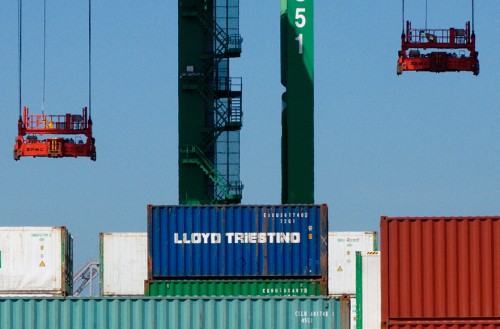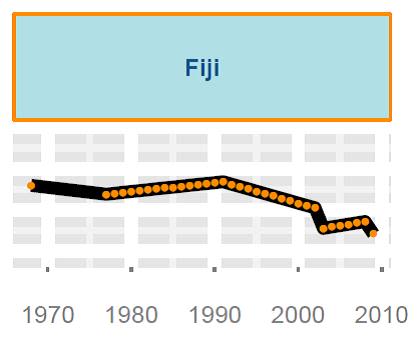Image: Jed Sullivan.
‘In every country, the history of inequality is political – and chaotic.’
Thomas Piketty (2014: 288)
Which countries have witnessed the most interesting or important episodes of redistribution? What were the politics behind these episodes? We want to know what you think. We’re looking for good ideas, good cases, and collaborators.
Take a look at this collection of inequality plots. Zoom in on the cases – which catch your eye?
How do you explain Cameroon since 1996, Fiji since 1991, Morocco 1975-1990, Thailand 1995-2001, or Zambia 1993-2002? Or, for that matter, Sweden in the 1930s? These are all sustained episodes of reduced income inequality.
Our focus is not the policies that redistributed wealth from the relatively rich to the relatively poor. It is the politics that made the policies possible.
Today – as part of Oxfam’s ‘Let’s talk about inequality’ blog action day – we want to start a conversation about the politics of redistribution.
If inequality isn’t inevitable, how can it be addressed? We think the answer is politics: political mobilisation, organisation and leadership creating pressures for change.
Thomas Piketty’s Capital shows that rising income inequality is a central feature of unmanaged capitalism, likely to produce crises unless governments actively intervene to reduce inequality.
What does this mean for developing countries? Gabriel Demombynes has done a nice job extrapolating from Piketty’s theory and gnomic utterances.
We approach this from a slightly different angle – one that Duncan Green came up with. What evidence do we have on how politics can, or better still, has moderated rising inequality? How do leaders and coalitions organise to create pressures for change? What is the role of power, ideas, coalitions, and critical junctures?
In Duncan’s words, Piketty ‘has no suggestion for how to overcome the collective action problems and political capture that would block any attempt [to tackle inequality and redistribute wealth] … politics/how change happens is not his strong suit (he endorses it in theory, but it’s just not his thing)’.
Piketty rejects any kind of ‘economic determinism’, saying that ‘the history of the distribution of wealth has always been deeply political’ (Piketty 2014: 20). Democratic politics and progressive policies can reduce the negative dynamics of wealth distribution – and they have done so. But the question of how societies can lower inequality has produced few concrete answers. Surprisingly, it has received little attention.
DLP’s new research project, The Politics of Redistribution, aims to help fill this gap by examining cases where countries have successfully lowered inequality for a sustained period of time (see our first attempt to think this through).
We plan to continue that conversation in depth at DLP’s annual conference next February on the broader issue of the politics of inequality (see here for the call for papers).
We look to the likes of Merilee Grindle, Marcus Melo, Njuguna Ng’ethe, and James Manor, and William Ascher for inspiration. These authors emphasise that reform success is often shaped by how leaders and reformists strategically engage with supporters and opponents to reduce resistance to reforms.
They can, for example, design initiatives that do not foster alarm or opposition; or create incentives and disincentives to convince other actors to support or tolerate reforms; or even distract opponents by downplaying proposed policies or publicising other issues that matter more to them.
In every case, the key is to astutely build coalitions – sometimes among unlikely partners – to promote change. Successful political leaders carefully tested the space available to them to pursue specific pro-poor policies and identified the constraints they faced from domestic and international sources.
Of course, there is no magic bullet, no easy route to redistribution that lowers inequality. Periods during which this happens may be triggered by some highly disruptive shock or crisis. Creating the political capital needed to build successful coalitions may require some unsavoury alliances. And solving one problem can create another. For example, in Malaysia affirmative action policies that lowered inequality have produced tensions between ethnic groups. It’s important to acknowledge and address these trade-offs and the realities of the political settlement from the outset.
So, let’s talk about the politics of reducing inequality. Which countries have witnessed the most interesting or important episodes of redistribution? What were the politics behind these episodes? Let us know by commenting below this blog post or using the hashtag #politicsredis on twitter. Thank you.











